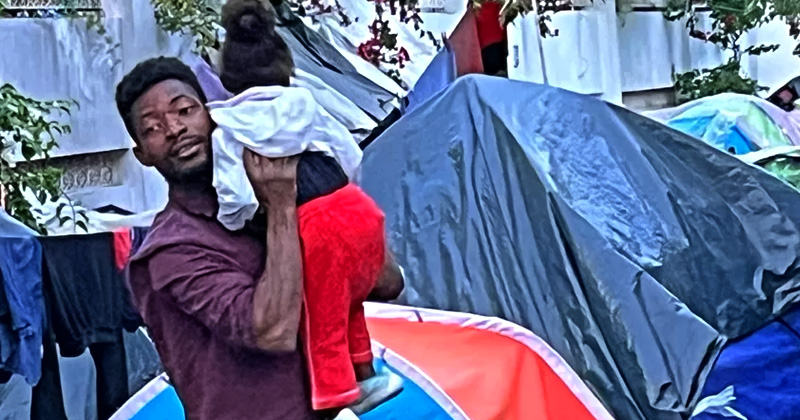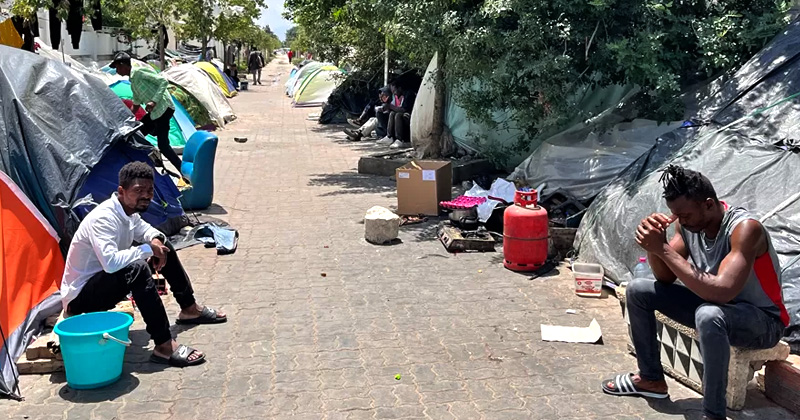Amidst the escalating number of migrants attempting to reach Europe, a corresponding surge in fatalities unfolds in the Mediterranean.
While European Union authorities grapple with addressing this mass exodus, the tragic consequences of those fleeing poverty and persecution manifest along the shores of Tunisia.
As dawn breaks along the eastern coast, fisherman Oussama Dabbebi embarks on the task of hauling in his nets. Anxious anticipation fills his expression, as the contents of his catch may yield more than just fish.
"Instead of finding fish, there are times when I come across lifeless bodies. Initially, it frightened me, but gradually I became accustomed to it. Over time, retrieving a deceased body from my net becomes as commonplace as catching a fish."
A 30-year-old fisherman, attired in a dark hooded sweatshirt and shorts, recounts the distressing experiences of discovering the remains of 15 migrants entangled in his nets over a span of three days. Recalling one haunting incident, he shares, "I once found the lifeless body of a baby. How could an innocent child bear any responsibility? Tears streamed down my face. It's different for adults, as they have experienced life. But for the baby, it never got to witness anything."
Having plied the waters near Sfax, Tunisia's second-largest city, since the tender age of 10, Mr. Dabbebi has witnessed profound transformations. In the past, he was among numerous fishermen casting their nets. However, he reveals that most fishermen have now relinquished their boats, selling them at exorbitant prices to people smugglers.

He further explains, "Smugglers have offered me unbelievable sums of money multiple times to sell my boat. Yet, I have always refused because if my boat were used and someone drowned, I could never forgive myself."
Not far away, a group of migrants originating from South Sudan, a nation plagued by conflict, climate shocks, and food insecurity since gaining independence in 2011, slowly walks away from the port. Their ultimate aspiration is to reach the United Kingdom.
One member of the group explains that they reluctantly abandoned their second attempt to cross to Italy due to an overcrowded boat and deteriorating weather conditions.
"We had planned to proceed despite the overwhelming number of people and the small size of the boat. However, when we pushed away from the shore, the wind became incredibly strong. It was too risky."
According to Tunisia's National Guard, approximately 13,000 migrants were intercepted and returned to the shore near Sfax due to overcrowded boats in the first three months of this year. Between January and April, an estimated 24,000 individuals departed from the Tunisian coast on makeshift boats, successfully making their way to Italy, as reported by the UN refugee agency.
Tunisia has now emerged as the primary departure point for migrants striving to reach Europe, surpassing Libya in this grim distinction. The shift can be attributed to the violence against migrants and abductions carried out by criminal groups in Libya, prompting many to seek an alternative route via Tunisia. However, it is worth noting that the boat involved in the recent tragedy off the Greek coast, claiming the lives of at least 78 individuals with around 500 still missing, had set sail from Libya.
Sfax, Tunisia's port city, bears witness to a haunting sight as numerous rusting and decaying vessels, either partially submerged or stacked in large piles, serve as melancholic reminders of the perils along the world's most lethal migration route. Another sobering testament awaits at the city's outskirts, within the cemetery. Rows of freshly dug, vacant graves extend in anticipation of the next maritime tragedy.
However, even these provisions will prove insufficient, as plans are underway to establish an entirely dedicated cemetery for migrants. In a single two-week period earlier this year, over 200 migrant bodies were recovered from the sea in this region alone.
Since 2014, over 27,000 lives have been lost in the relentless Mediterranean crossing.
This escalating tragedy poses significant challenges for the city. Dr. Hatem Cherif, the director of the regional health authority, explains the insurmountable strain on existing facilities when it comes to dealing with such a high number of deaths.
"The mortuary at the hospital can accommodate a maximum of 35 to 40 bodies, which is usually sufficient. However, with the increasing influx of bodies, we have far exceeded our capacity."
Recently, as many as 250 bodies were brought to the mortuary, necessitating the utilization of an adjoining chilled room aptly named the "catastrophe chamber," where bodies were stacked upon one another. Dr. Cherif emphasizes that each individual will receive a separate, numbered grave.
 Given the high number of unidentified bodies, DNA testing is being conducted, and the results are meticulously stored. This initiative aims to facilitate the identification of loved ones by enabling relatives to check for matches with their own DNA and determine if they are buried within the dedicated cemetery.
Given the high number of unidentified bodies, DNA testing is being conducted, and the results are meticulously stored. This initiative aims to facilitate the identification of loved ones by enabling relatives to check for matches with their own DNA and determine if they are buried within the dedicated cemetery.
In central Tunis, several hundred members of Tunisia's black minority, including women and children, find themselves encamped in small tents outside the offices of the International Organization for Migration, located three hours' drive northwest. These individuals were forcefully evicted from their homes and terminated from their jobs in the city following a highly inflammatory racist speech delivered by President Kais Saied in February.
The President's speech, where he referred to "hordes" of illegal migrants entering the country as part of a "criminal" agenda to alter its demographic makeup, was widely seen as an attempt to assign blame for the country's severe economic crisis. This crisis has driven many desperate Tunisians to embark on their own migration journeys.
A young man from Sierra Leone, displaying a fresh stab wound on his arm, explains that since the President's speech, local youths armed with knives have targeted numerous individuals within the camp. "Arab boys came here to attack us. The police promised to keep us safe if we stay here. However, venturing beyond this area puts our safety at risk."
While the President's actions and the erosion of civil rights and imprisonment of opponents raise concerns, EU officials seem to prioritize curbing the flow of migrants over addressing these pressing issues.
Italy has already received over 47,000 migrants this year, a three-fold increase compared to the same period last year, prompting calls for action. During a recent visit, a delegation led by Ursula Von der Leyen, the head of the European Commission, pledged a potential financial support package of nearly 1 billion euros ($1 billion; £850 million). If approved, approximately a tenth of this amount would be allocated to combatting human trafficking.
The recent tragedy off the Greek coast has intensified demands for action. However, with migrants growing increasingly desperate and human trafficking remaining profitable for smugglers, halting the flow of small boats poses a significant challenge.
In the streets of Sfax, crowds of migrants from various parts of Africa and the Middle East gather in shaded areas. Some possess the means to pay for a spot on a trafficker's boat, while others exist in a state of limbo, unable to afford even their basic needs. Many have lost or had their passports stolen, while others never possessed one due to their illegal departure from their home countries.
Despite awareness of the numerous deaths that occur during attempts to reach Europe, desperation outweighs the perils for individuals like a young man from Guinea who explains, "I cannot return to my country because I lack money and a passport. I am not afraid. I am starving, experiencing profound poverty [at home], and my parents have nothing. I do not want my children to endure such conditions. I need to go." Tragically, this fundamental human yearning for a better life often exacts an exceedingly high price.